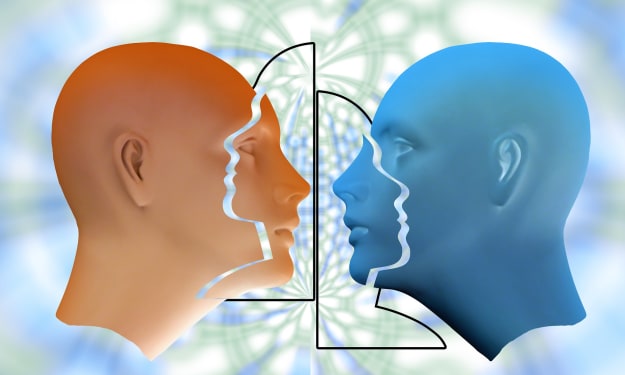The science behind meditation
How meditation changes the brain and its impact on mental health.

Meditation has become a buzzword in recent years, with more and more people turning to this ancient practice to improve their mental, emotional, and physical health. Meditation is a technique that has been practiced for centuries, and its benefits have been extolled by sages, monks, and scholars throughout history. The practice of meditation has been shown to have a positive impact on human life in a variety of ways. In this article, we will explore the impact of meditation on human life and the benefits of incorporating this practice into our daily lives.
Meditation is a practice that involves training the mind to focus and become more aware of one's thoughts, emotions, and surroundings. It is a technique that involves focusing on a particular object or thought, such as the breath, a mantra, or visualization, and allowing the mind to become calm and still. The practice of meditation has been shown to have a variety of benefits for the mind and body, including reducing stress, anxiety, and depression, improving cognitive function, and boosting overall well-being.
One of the most significant impacts of meditation is its ability to reduce stress and anxiety. The practice of meditation has been shown to activate the parasympathetic nervous system, which is responsible for the body's relaxation response. When the parasympathetic nervous system is activated, the body's heart rate slows down, blood pressure decreases, and the body enters a state of deep relaxation. This deep relaxation can help reduce the symptoms of stress and anxiety, such as tension, worry, and nervousness.

Meditation has also been shown to have a positive impact on mental health. Studies have found that regular meditation practice can help reduce the symptoms of depression and anxiety, improve mood, and enhance overall well-being. Meditation has also been shown to be an effective tool for managing chronic pain, reducing symptoms of PTSD, and improving sleep quality.
In addition to its benefits for mental and emotional health, meditation has also been shown to have a positive impact on physical health. Studies have found that regular meditation practice can help lower blood pressure, improve heart health, and boost the immune system. Meditation has also been shown to be an effective tool for managing chronic pain, reducing symptoms of irritable bowel syndrome (IBS), and improving sleep quality.
One of the most significant impacts of meditation is its ability to improve cognitive function. Studies have found that regular meditation practice can help improve attention, concentration, and memory, and may even slow down the aging process of the brain. Meditation has also been shown to be an effective tool for improving creativity, problem-solving skills, and decision-making abilities.
Another benefit of meditation is its ability to promote feelings of compassion, empathy, and kindness. The practice of meditation has been shown to activate the brain's "compassion center," which is responsible for feelings of love and kindness. Regular meditation practice can help improve social connections, reduce feelings of loneliness and isolation, and promote feelings of gratitude and contentment.
Incorporating meditation into your daily life can be a powerful tool for improving your overall health and well-being. There are many different types of meditation, so it's essential to find a practice that works for you. Some people prefer guided meditation, while others prefer to meditate in silence. Whatever your preference, it's important to find a practice that you enjoy and can stick to over time.
In conclusion, the practice of meditation has a profound impact on human life. It has been shown to have a variety of benefits for the mind, body, and spirit, including reducing stress and anxiety, improving mental and emotional health, boosting physical health, improving cognitive function, and promoting feelings of compassion and kindness. If you're looking to improve your overall well-being, consider incorporating meditation into your daily routine.
About the Creator
Gopikrishna
I’m a man roaming the streets of Tamil Nadu with millions of dreams in mind. I hope here my blog will bring joy to readers. So motivate me by hitting the like and subscribe buttons also anyone can interact with me on a comment session.






Comments
There are no comments for this story
Be the first to respond and start the conversation.